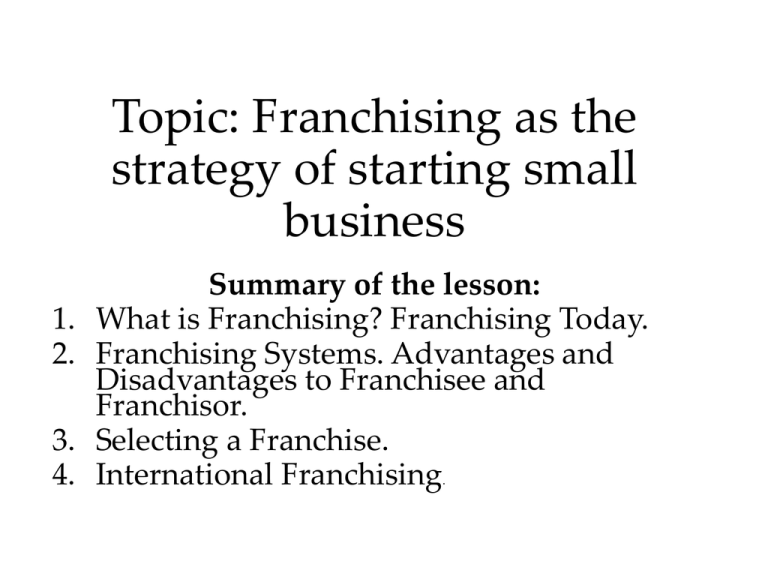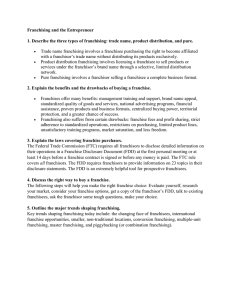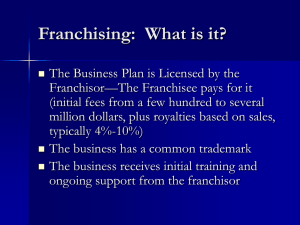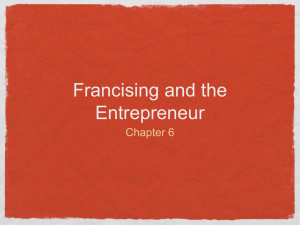What is Franchising?
advertisement

Topic: Franchising as the strategy of starting small business 1. 2. 3. 4. Summary of the lesson: What is Franchising? Franchising Today. Franchising Systems. Advantages and Disadvantages to Franchisee and Franchisor. Selecting a Franchise. International Franchising . What is Franchising? Franchising Today. • A franchise is an agreement that binds a franchisor (a parent company of the product, service, or method) with a franchisee (a small business that pays fees and royalties for exclusive rights to local distribution of the product or service). • Through the franchise agreement, the franchisee gains the benefit of the parent company’s expertise, experience, management systems, marketing, and financial help. Franchisors benefit because they can expand their operations by building a base of franchisees rather than by using their own capital and resources. Background • Franchises have experienced considerable growth since the 1950s. However, contrary to popular belief, the concept did not originate with McDonald’s. In fact, franchises have existed since the early 1800s. • In the 1830s, Cyrus McCormick was making reapers, and Isaac Singer began manufacturing sewing machines. Franchising Today Today franchising is found in almost every industry Franchising Systems. Advantages and Disadvantages to Franchisee and Franchisor. There are two types of franchises: •Product-distribution franchising •A type of franchising in which the franchisee agrees to purchase the products of the franchisor or to use the franchisor’s name. •Business-format franchising •A type of franchising in which the franchisee adopts the franchisor’s entire method of operation. Selecting a Franchise. Choosing the right franchise is a serious decision. Investing in a franchise represents a major commitment of time and money. Before taking the plunge into franchising, determine what you need in a business and evaluate what several different franchises can offer you and your customers. • Disclosure statements. Information that franchisors are required to provide to potential franchisees. • Franchise agreement. The legal contract that binds both parties involved in the franchise • Franchise fee. The one-time payment made to become a franchisee. • Royalty fees. The ongoing payments that franchisees pay to franchisors— usually a percentage of gross sales. • Franchise fee. The one-time payment made to become a franchisee. • Royalty fees. The ongoing payments that franchisees pay to franchisors—usually a percentage of gross sales. International Franchising. Franchises are rapidly exploring opportunities for international expansion when faced with saturated domestic markets. Foreign markets are often less crowded and more underserved. •The success of U.S. franchises is spreading all over the globe. In response, many governments are enacting legislation to regulate franchise operations. Following are some highlights of franchise legislation from a variety of countries: •United States. This chapter has highlighted the federal laws covering disclosure statements, registration requirements, and restrictions on the sale and offering of franchises.







